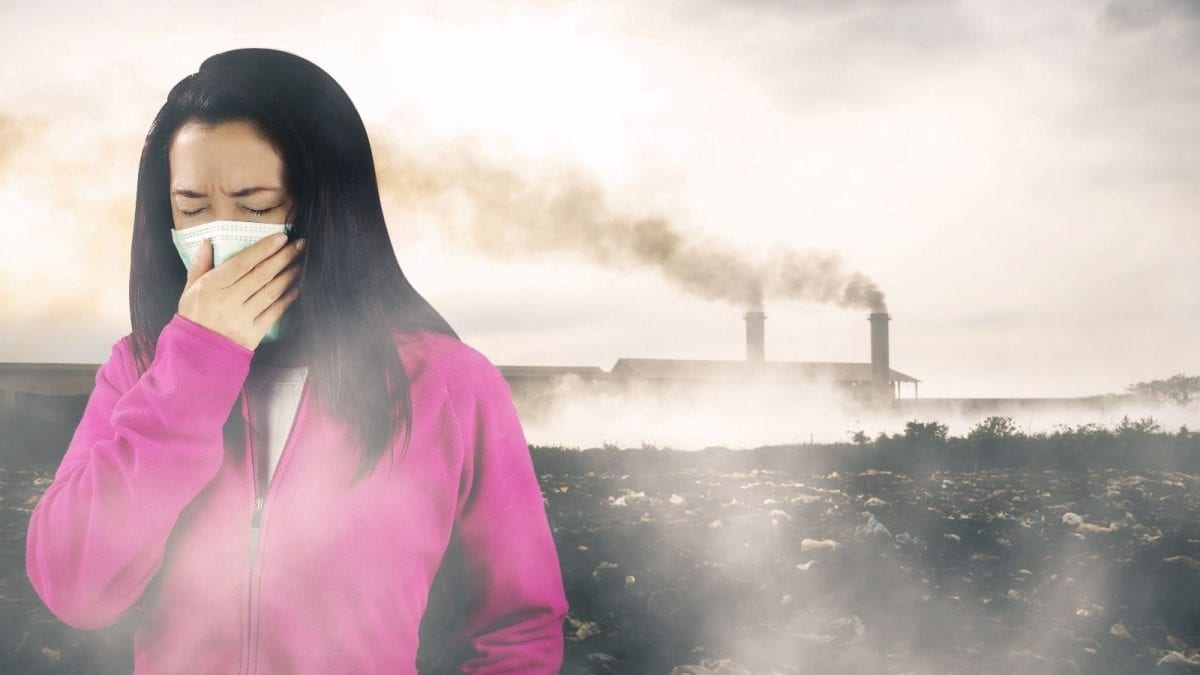Last Updated:
Toxic air killed an estimated 17 lakh or more Indians in 2022, which is 38% higher than the 2010 estimate.

Deaths from air pollution in India increased by 38% since 2010. (Image: Canva)
A new analysis published in the Lancet Countdown on Health and Climate Change revealed that fine particulate matter (PM2.5) caused by humans killed approximately 1.72 million people (around 17.2 lakh) in India in 2022. The number of deaths has increased by 38% compared to 2010. The analysis indicates that the economic impact of outdoor air pollution in India is nearly equivalent to the human cost associated with premature deaths. In 2022, the estimated loss due to these premature deaths was around USD 339.4 billion, which represents approximately 9.5% of the country’s GDP.
The size of the problem, as the team describes with 128 experts from 71 academic institutions and UN agencies, is the worldwide structural dependence on fossil fuels, general pollution, and the lack of readiness for the transition, which are the major causes of the crisis.
Fossil Fuels Now Top Killer In PM2.5 Crisis
Fossil fuel emissions, such as from coal, liquid petrol, and petrol, were the main cause for almost 44% of those deaths, or 7.52 lakh people, according to the report. Coal combustion caused about 3.94 lakh deaths, of which 2.98 lakh were from coal-based power generation; petrol use for road transportation was accountable for approximately 2.69 lakh deaths.
There are a few more dismal datapoints that the research points out: solid biofuel-based household air pollution was identified as the main culprit in rural areas, with roughly 113 deaths per 100,000 people and even more deaths (125 deaths per 100,000) in comparison to the population of 99 deaths per 100,000 in the urban areas were recorded.
Besides that, there is significant data that shows that forest fires alone have been causing 10,200 deaths each year on average between 2020 and 24, which, in fact, is 28% more than the previous decade. It is suggested that the use of petrol for road transportation alone has resulted in nearly 269,000 deaths, which in turn is the primary reason behind transportation emissions.
Urgent Call For Clean-Air And Low-Carbon Action
The findings, which come ahead of the COP30 global climate meetings, highlight the close links between energy policy, health, and air pollution. The authors emphasise that “continued over-reliance on fossil fuels… is costing people’s lives, health, and livelihoods,” warning that India’s readiness for a low-carbon transition has decreased by two percentage points from 2023.
Environmental health specialists say that as a result of the difficulties in putting into effect the National Clean Air Program (NCAP), which targets a 40% reduction in PM2.5 and PM10 levels in 131 cities by 2026, there has hardly been any progress. The majority of cities in the northern parts of India, in particular, still experience some of the greatest annual PM2.5 concentration levels worldwide.
Experts assert that to reduce air pollution, India must deal with the issue of its energy structure that heavily depends on coal and liquid fuel, stop the use of the old polluting fuels for indoor purposes, shift the transport sector to clean energy and accelerate the utilisation of renewable energy sources.
Delhi, India, India
November 01, 2025, 17:30 IST







